In the crowded city of Amman, Jordan, amidst the narrow alleys and old streets, lies a story of resilience, hope, and the transformative power of compassion embodied by Nabiha Muhamaid, a 49-year-old widowed mother of three, whose journey mirrors the struggles of countless others displaced by conflict.
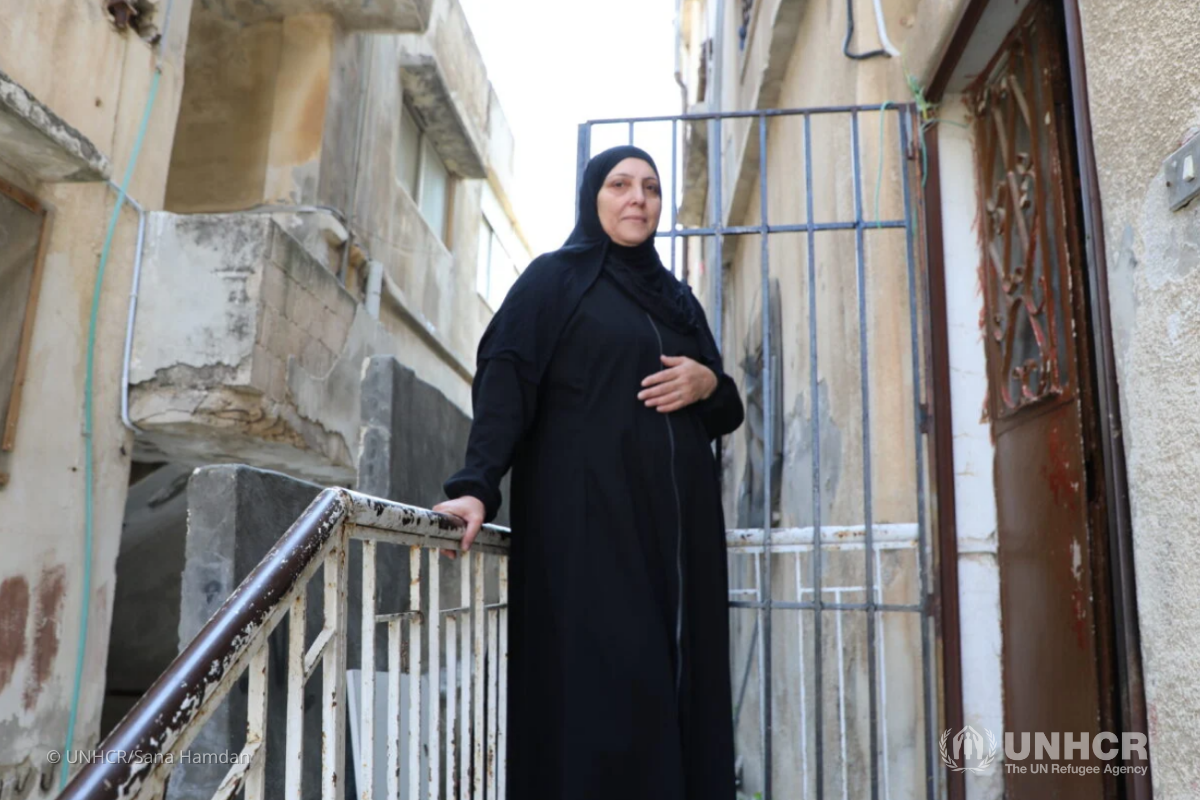
Nahiba’s family is one of many thousand refugee families of different nationalities for whom UNHCR cash assistance became a game-changer far beyond financial relief: It transformed her family’s dynamics and secured her children’s education and well-being.
Nabiha’s odyssey to Jordan began in 2014, a journey marked by hardship and risk. Alone with her five young daughters at the time, three to twelve years old, she fled the chaos of Syria, seeking refuge and safety across the border. “It was a tough journey,” she sighs. “But it was all worth it for the sake of my daughters’ safety.”
Settling in Amman after a brief stay in Azraq refugee camp, Nabiha faced the daunting task of rebuilding her life from scratch. All by herself, she had to manage an apartment, negotiate rent, and provide for her family. Yet, amidst the difficulties, the UNHCR cash assistance became her lifeline, offering a semblance of stability in the face of uncertainty.
“The assistance helped me secure our rent and ensured my daughters didn’t have to sleep on the streets”, says Nabiha.

However, financial setbacks and health challenges tested Nabiha’s resolve. Her daughter’s battle with vitiligo, a skin condition, drained their resources, leading to months of unpaid rent and mounting debt. “The landlord waited at first, but then he got mad”, recalls Nahiba. “He said he’d take all the furniture if I didn’t pay. One day, he took it all.” And after a pause, she adds with a heavy heart: “That’s when it hit me hard, how much I needed my husband.”
Nahiba lost her husband tragically in Syria when he fell from the third floor while at work. His sudden passing left a profound void in their lives. Whenever she recalls the circumstances of his death, her eyes fill with sadness and tears, a poignant reminder of how much she misses him. Nabiha struggled, moving from one inadequate apartment to another, her financial resources never quite enough to secure a decent and suitable home for her family. Each relocation brought the same challenges – cramped living conditions, dampness, and inadequate ventilation, all examples of the lack of basic amenities necessary for a dignified life. “I used to work extra jobs to supplement our income. Cleaning stairs, chopping and cleaning vegetables – anything to earn a few extra dinars.”
But then, fate struck again: “A bone issue made me unable to continue”, says Nahiba, “I became totally dependent on the UNHCR cash assistance – our only income.”
This brought another wave of uncertainty over Nabiha – how to use the limited cash assistance. She decided to prioritize her daughter Rafeef’s university studies of digital media “I didn’t want her to lose her future,” Nabiha explains about her eldest one who used to be a top student in school. “I made sacrifices so that she could pursue her dreams.”
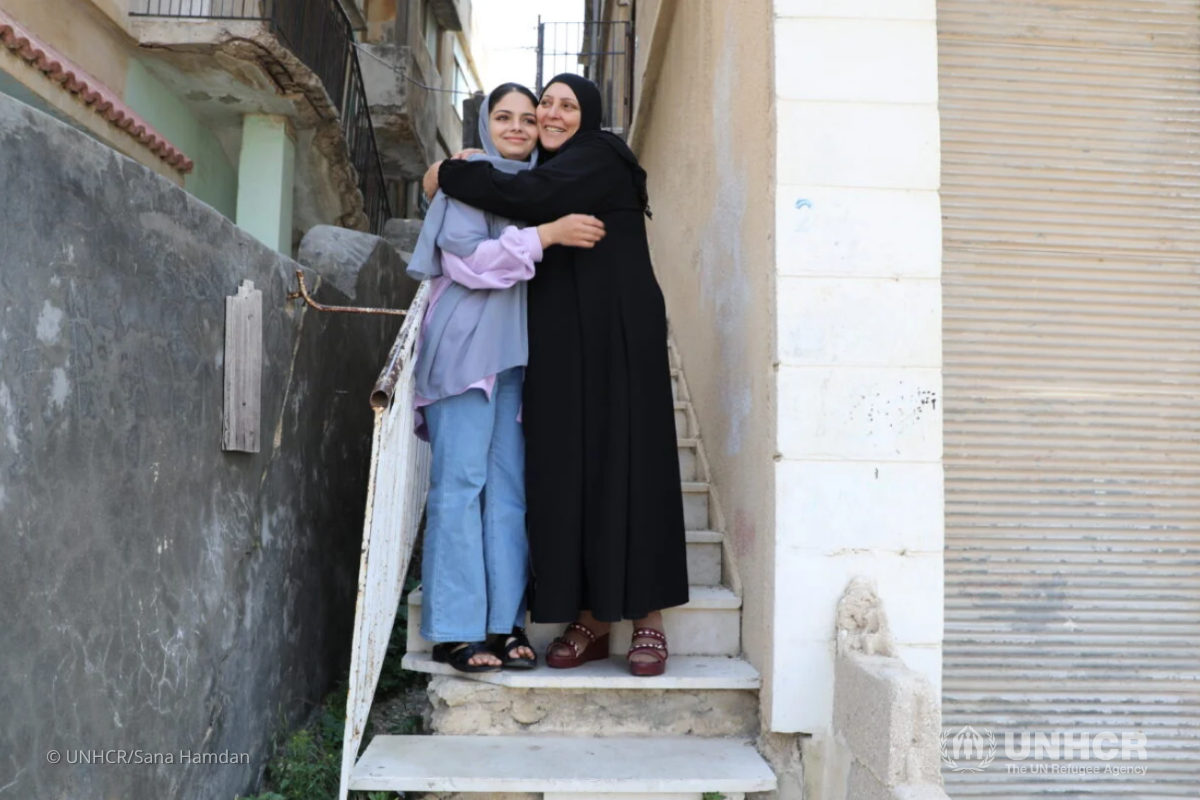
“I’m grateful for my mom’s sacrifices and the opportunity to pursue my education, especially without my father here to support me,” says Rafeef, 20 years old, studying digital media.
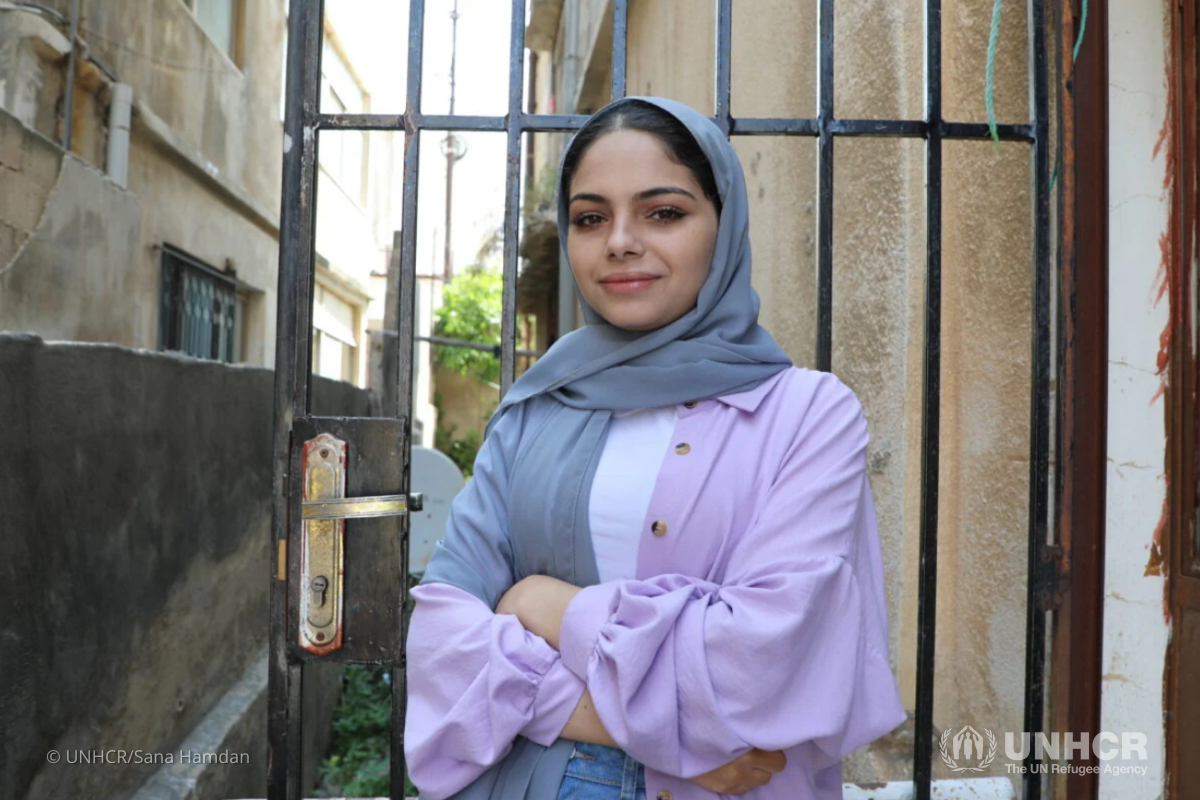
Till today, there are tough decisions Nabiha needs to take. Sometimes, she must choose between paying the rent or covering her daughter’s university fees, which has left her with a debt of around 1,600 Jordanian Dinars (some $2,300) for rent and electricity.
But it doesn’t end there. With two other daughters still in school, Nabiha must also provide for their daily allowances, adding to her financial stress.
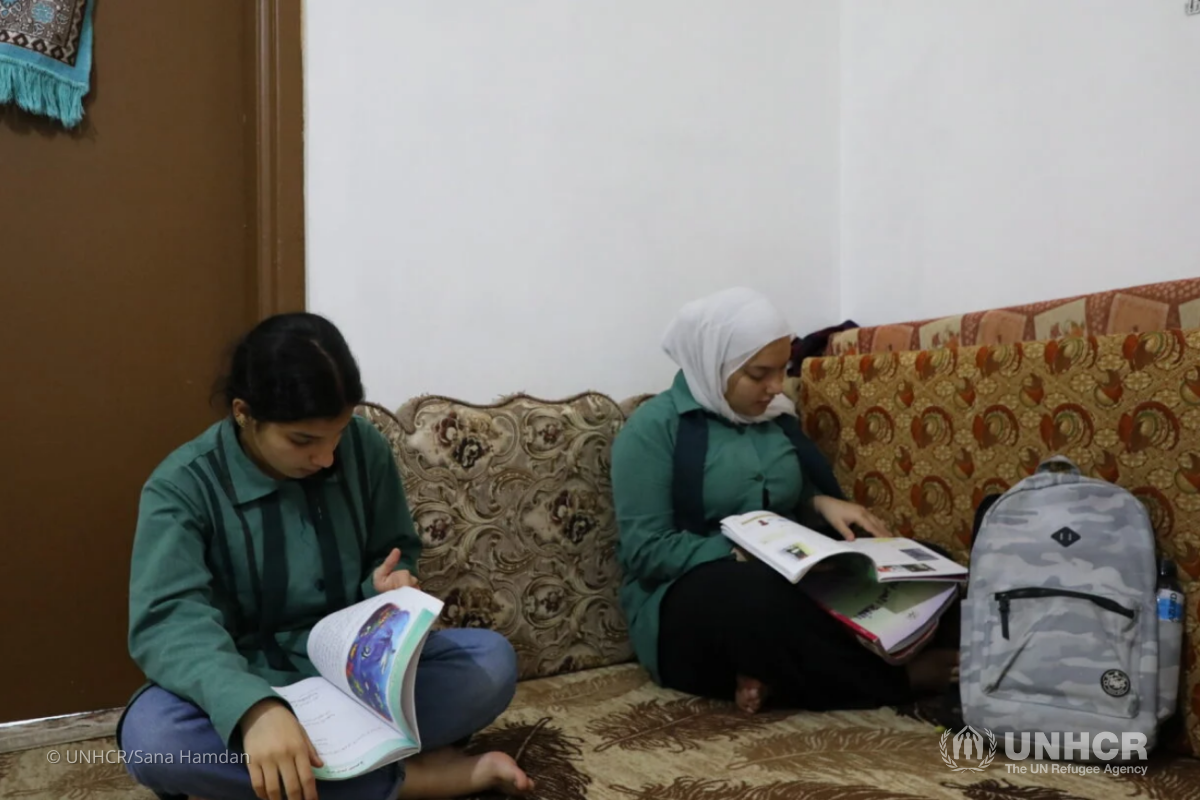
Despite the difficulties, the hope of her daughter’s future graduation fills Nahiba with pride and optimism.
“Cash assistance is shaping my daughters’ future since we depend on it for Rafeef’s education. It’s giving her a chance for a better life. “
The thought of not receiving the assistance, however, is haunting her in her dreams, for it is the thread that holds together the fragile tapestry of her family’s well-being. “If the assistance were to be cut,” she says, her voice tinged with worry, “I would have to make the heartbreaking decision to withdraw my daughters from school, and my eldest from university.”
UNHCR’s cash assistance program is offering a hand to those in need such as Nabiha. It is made possible by generous Zakat contributions or, as she puts it, “the goodness of others”. Among these compassionate contributors stands Rahima International Foundation, whose remarkable generosity infused $250,000 into this vital program, amplifying support for many families in need.
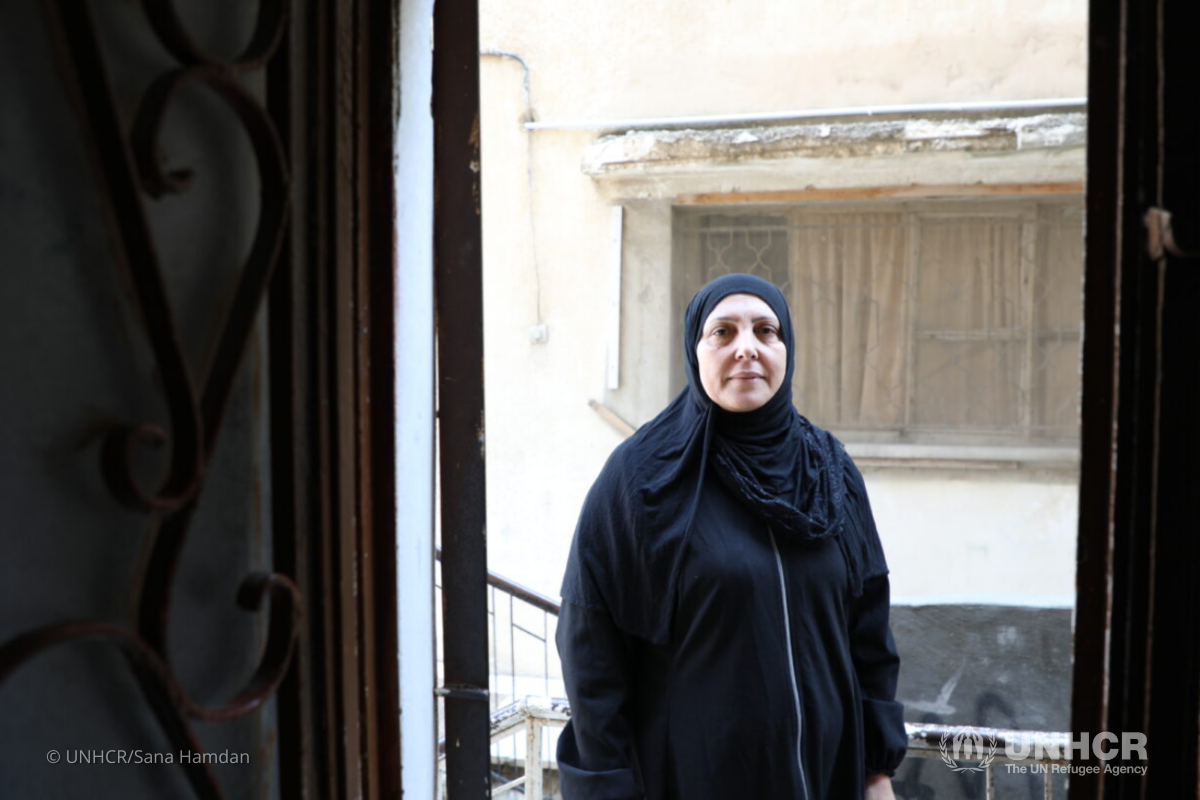
“Every Dinar we provide is a lifeline for extremely poor refugees with limited family support and no ability to earn money on their own”, says Mette Karlsen, UNHCR’s Senior Program Officer responsible for cash assistance in Jordan. “It’s especially vital for the disabled, elderly, caregivers, and widows. For many, it’s their sole income, crucial for survival”.
To maximize the positive impact of Zakat on the lives of refugees, UNHCR piloted the “Refugee Zakat Fund” in 2017, as a trusted, compliant channel where 100 percent of Zakat goes to refugees directly. In 2024, UNHCR in Jordan received over $1.6 million in Zakat contributions for its cash assistance program so far, offering essential support to nearly 4,300 vulnerable widow families like Nabiha’s. As it makes the burden of financial worries a bit lighter, families like Nabiha’s can focus on what truly matters – pursuing dreams and building a brighter tomorrow.


